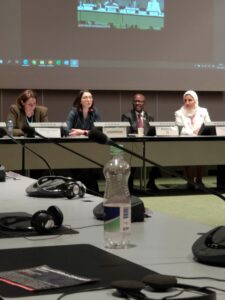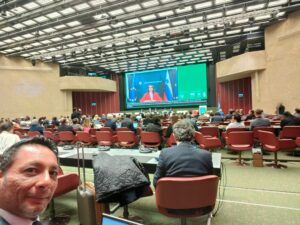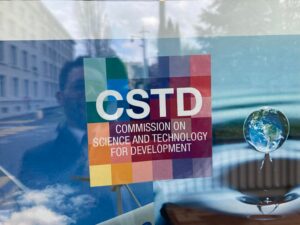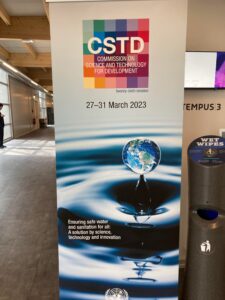UNOG: PPI consultations on autonomous weapons systems, information society, and science at the UN
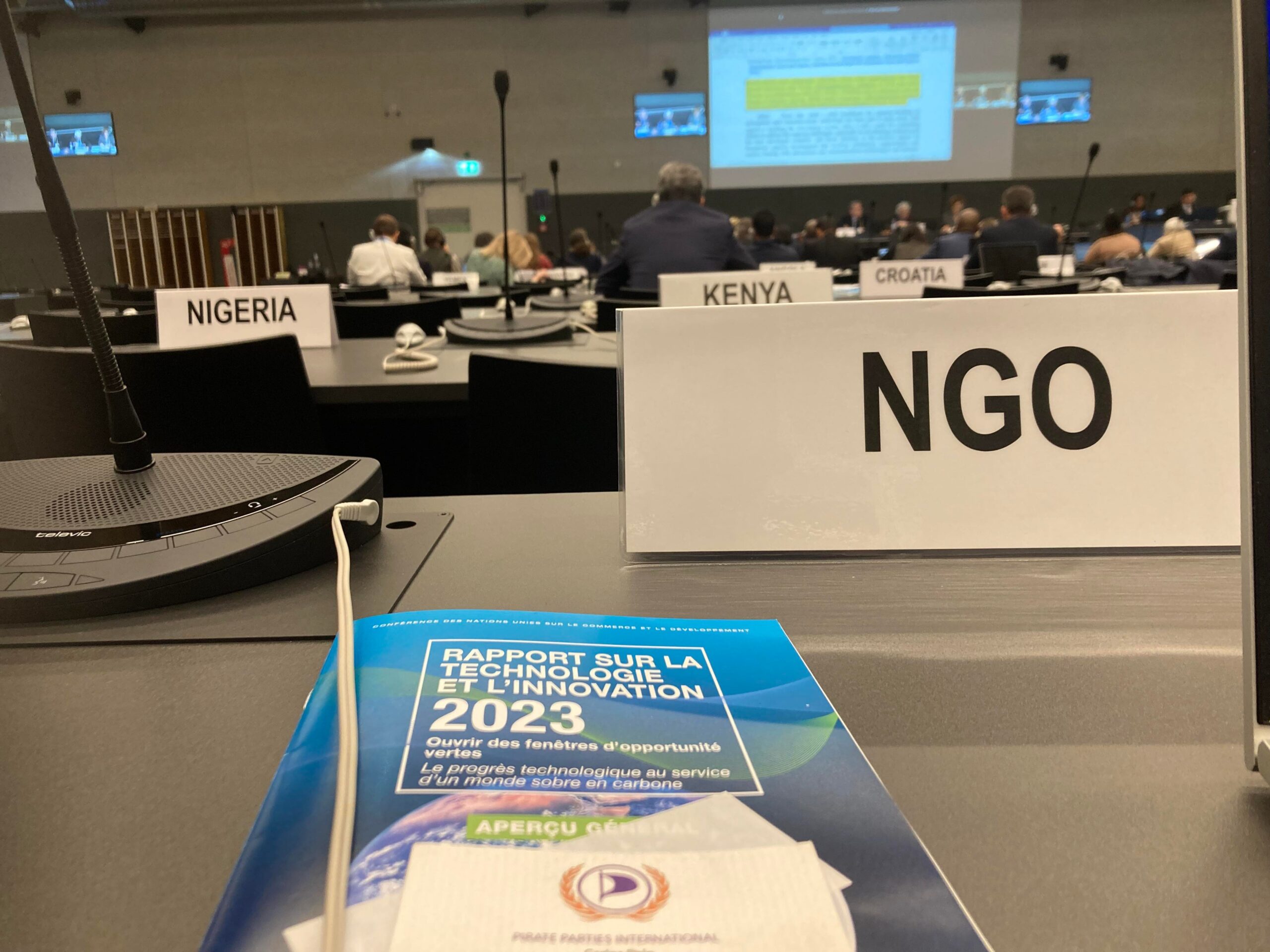
An Update on Numerous Recent Activities of PPI at the United Nations Office in Geneva!
Autonomous Weapons Systems (AWS)
PPI has been accepted to be one of the Civil Society representatives to contribute on the mandate of regulation of autonomous weapons systems (AWS). All the technological aspects of understanding the use of functions of this systems are clear for all actors, the main issues of discussion are when the machine can decide for itself to take a human life.
There are several points of discussion regarding the fact that a machine can be autonomous to kill, as we have observed, drawing a parallel with the dangers of biological weapons. After nearly 35 years of negotiation, we have laws that govern the discussion on biological weapons. In the mean time, however, AWSs are already in use with little to prevent their misuse…
World Summit on the Information Society (WSIS)
As in previous years PPI was present at the WSIS Forum 2023. The event was full of positive energy. We look forward to the challenges ahead to accomplish the SDG goals of 2030. Many actors from governments, academia, civil society, and businesses were invited to share and contribute to develop strategies, action plans, and cooperative agreements to achieve results that will help humans regarding civil society and the objetives of fixing the UN assembly.
Small countries like Slovenia use the potential of digitalization to create value for their citizens. Maybe this kind of example can be reproduced in other small states financed by the big contributors. They can be implemented and followed by intergovernamental agencies or UN bodies with the aim “to make sure no one is left behind”.
Science for Diplomats and the Commission for Science Technology and Development (CSTD)
PPI was accepted to be part of a group of diplomats from around 20 countries to participate in an exercise that combines diplomacy, multisector and science actors. The results of this exercise were more than interesting. This exercise shows how the multi disciplinary process must be able to adjust to get resilient structures that could resist cyber attacks. For example, bioscientists and workers in the nuclear sector must be well informed about all new technics of cyber intrusion and social engineering.
A big thanks to Carlos Polo, Alexander Kohler, Fabian Rousseau, and our other PPI UNOG representatives who made all of this possible. We look forward to updating you more about our activities at UN. Please continue to support our important work.
